Tokyo’s over-80s football teams show no sign of slowing down
For Japan’s ageing football players – 80 is the new 50
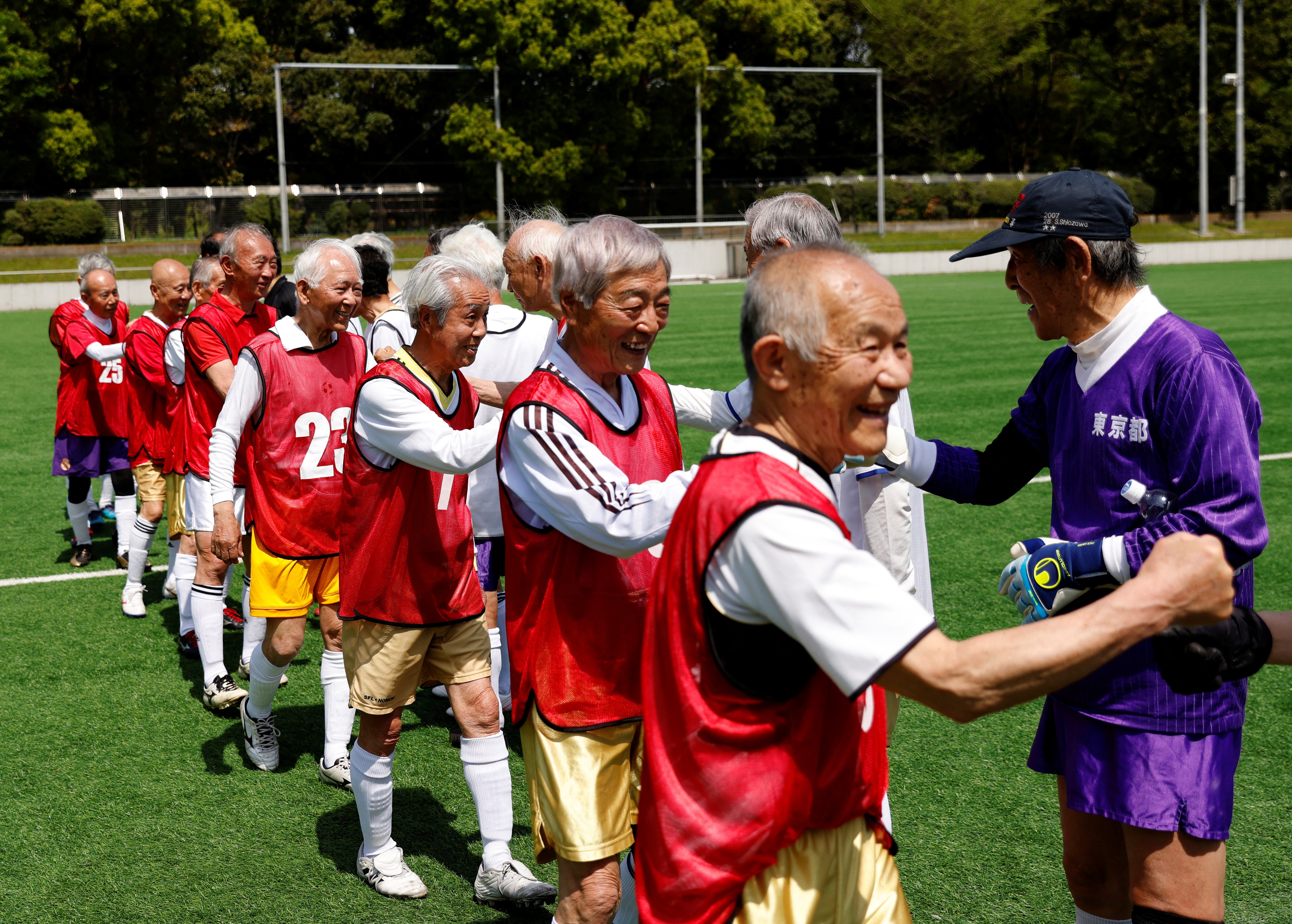
Mutsuhiko Nomura’s football career has spanned 18 World Cups, or 70 years, to be exact.
Now the silver-maned former Japanese national team player is a member of the brand new over-80 division of Tokyo’s “Soccer For Life” (SFL) league, which played its first match this month.
The sprightly 83-year-old and his teammates are among a growing number of seniors pushing the boundaries of active living in Japan, one of the world’s fastest-greying societies.
“When I was a kid, men in their 50s and 60s were considered ‘grandpas’,” Nomura, already a member of several amateur teams, said after a pre-season practice match in February.
“And now, we’re all still at it in our 80s. It’s shocking.”
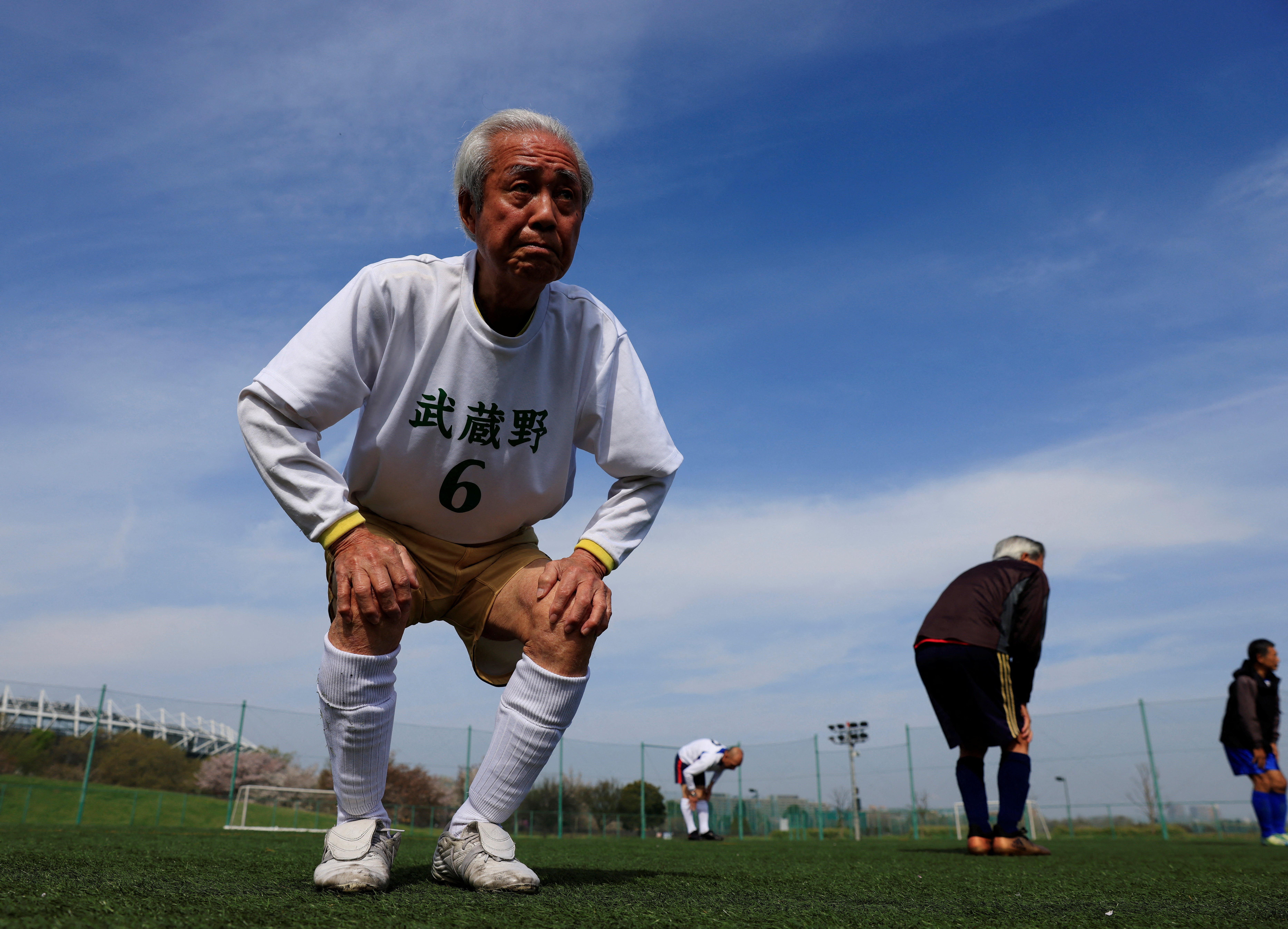
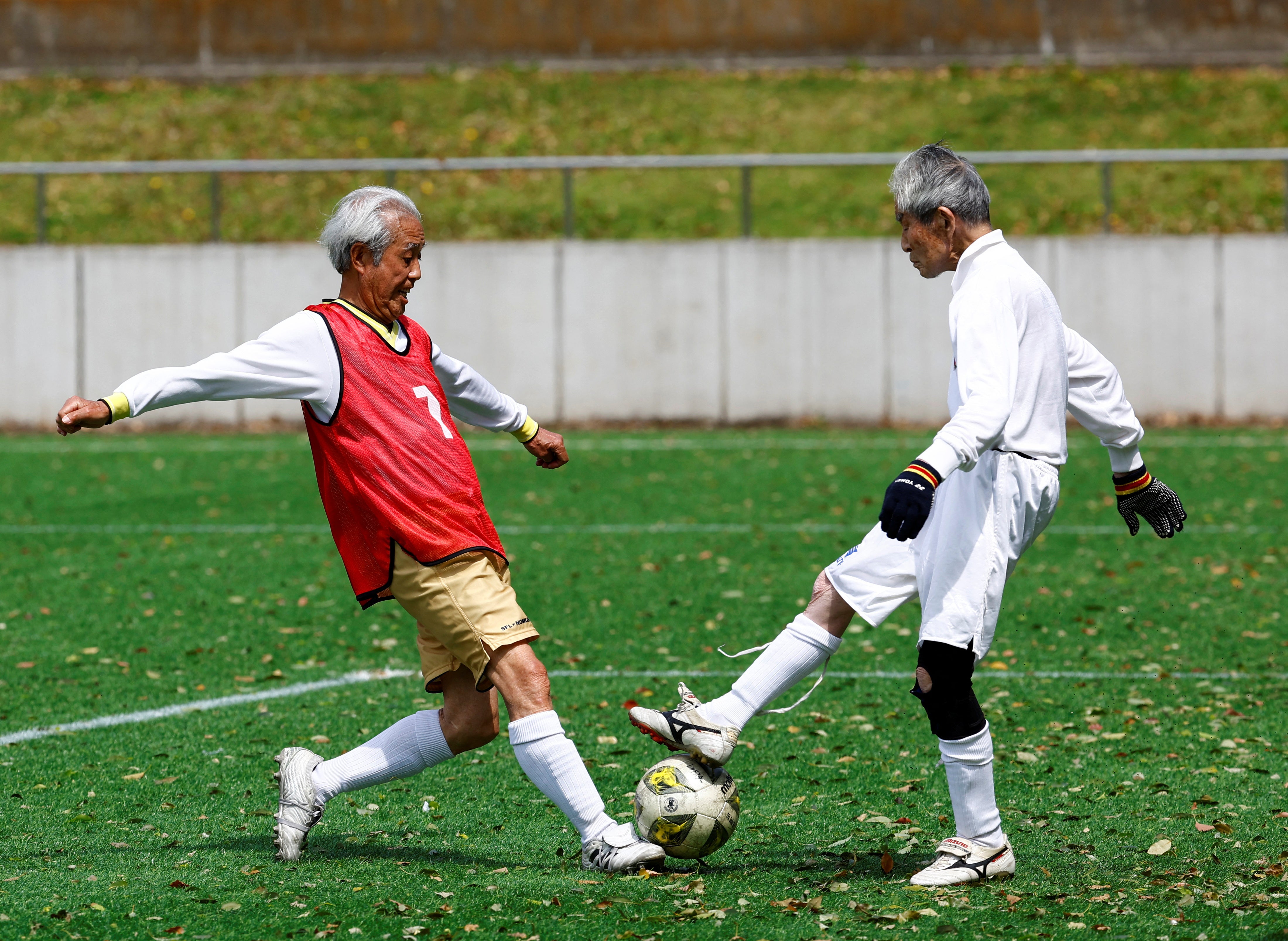
As Japan’s average lifespan inches up, people aged 65 and more form nearly a third of its population of 126 million, with life expectancy, now at 85, ranking among the world’s highest.
That has brought societal changes, too: about a fifth of those older than 70 are employed, and the government encourages pensioners to start collecting later, by holding out the promise of larger deferred payments.
Elderly security guards and shopkeepers have become a common sight.
“I think the formation of the 0-80 division is a reflection of what we’re seeing in Japanese society, where the elderly demographic can be active like this,” said Yutaka Ito, the secretary general of the SFL league.
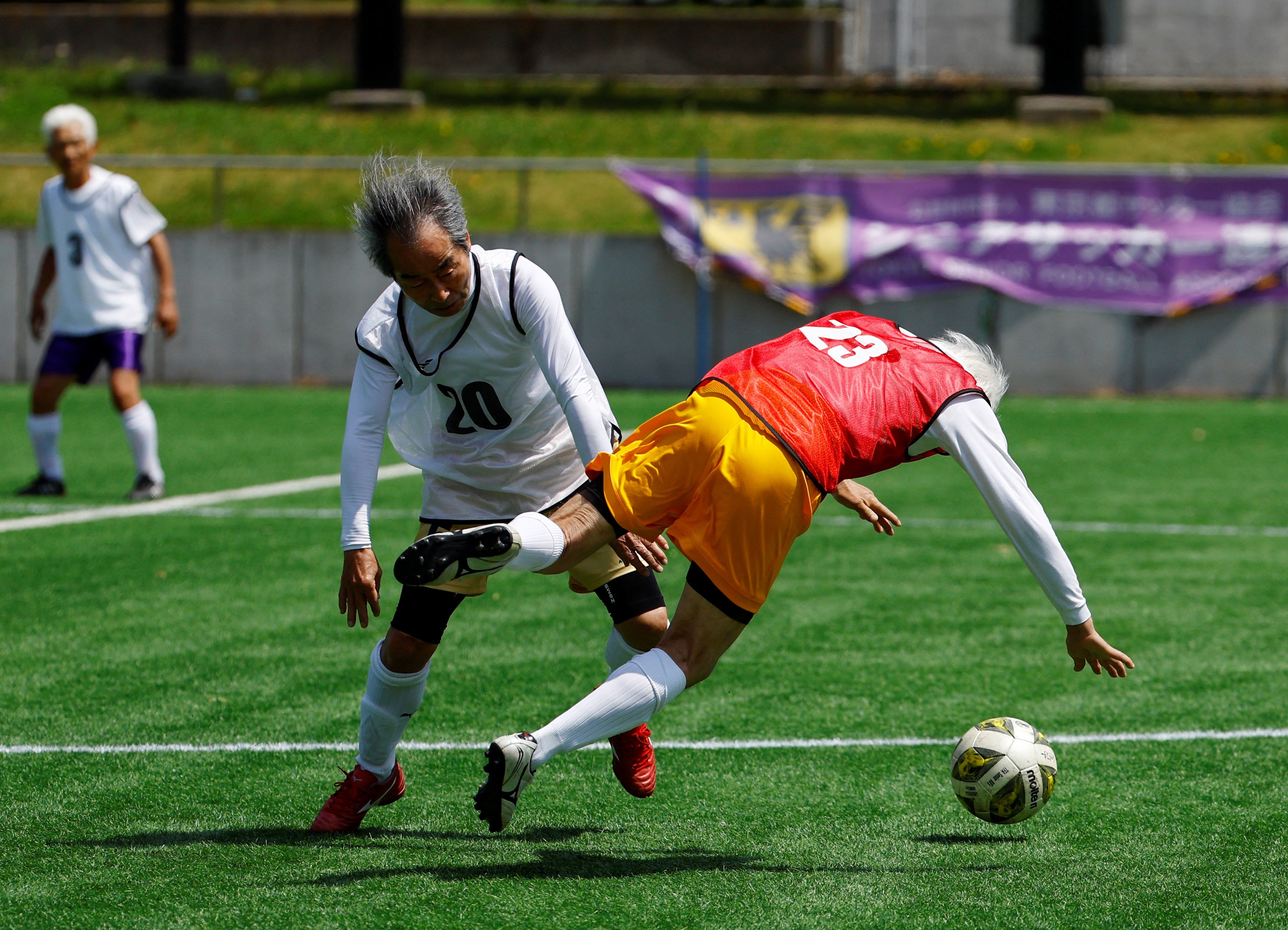
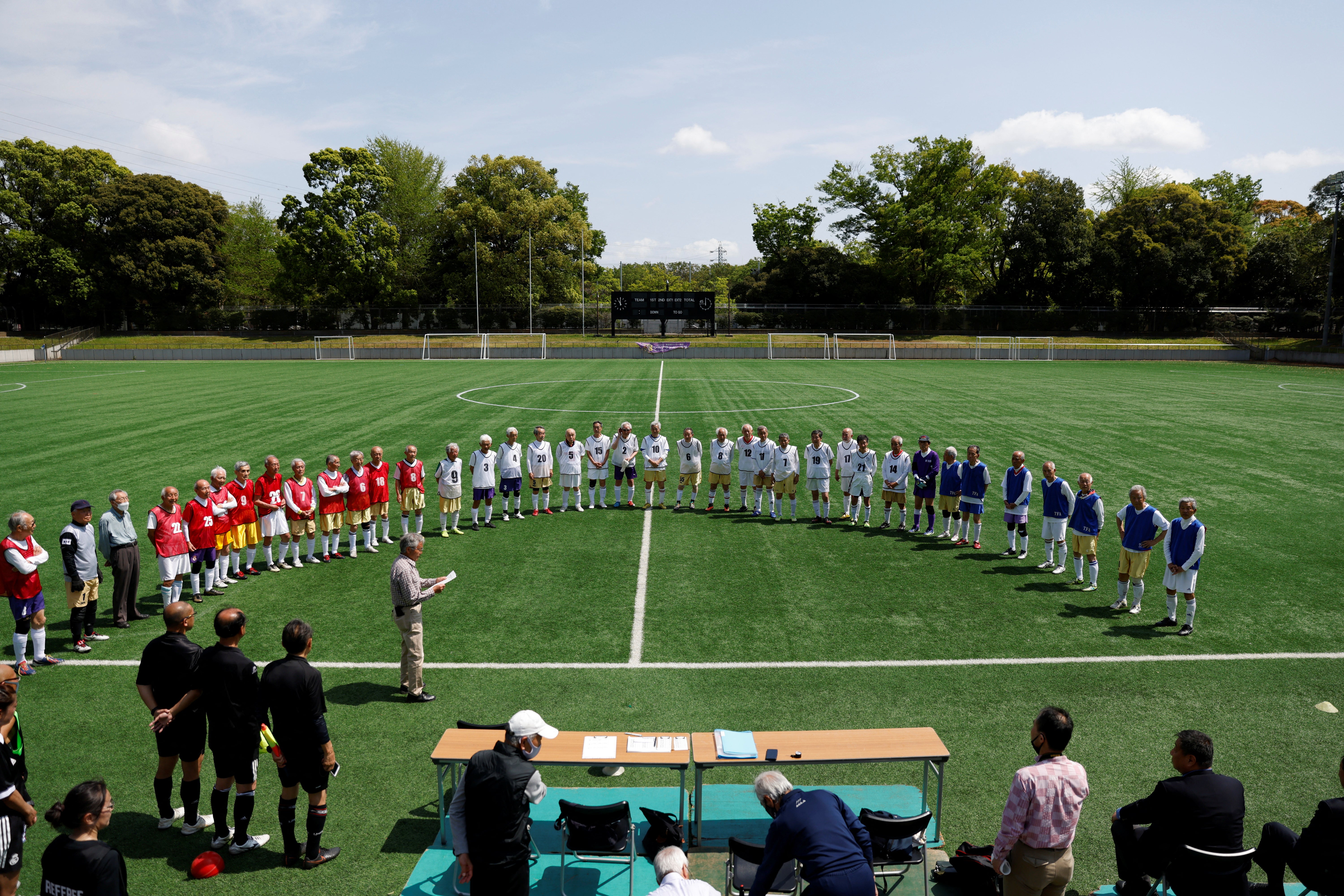
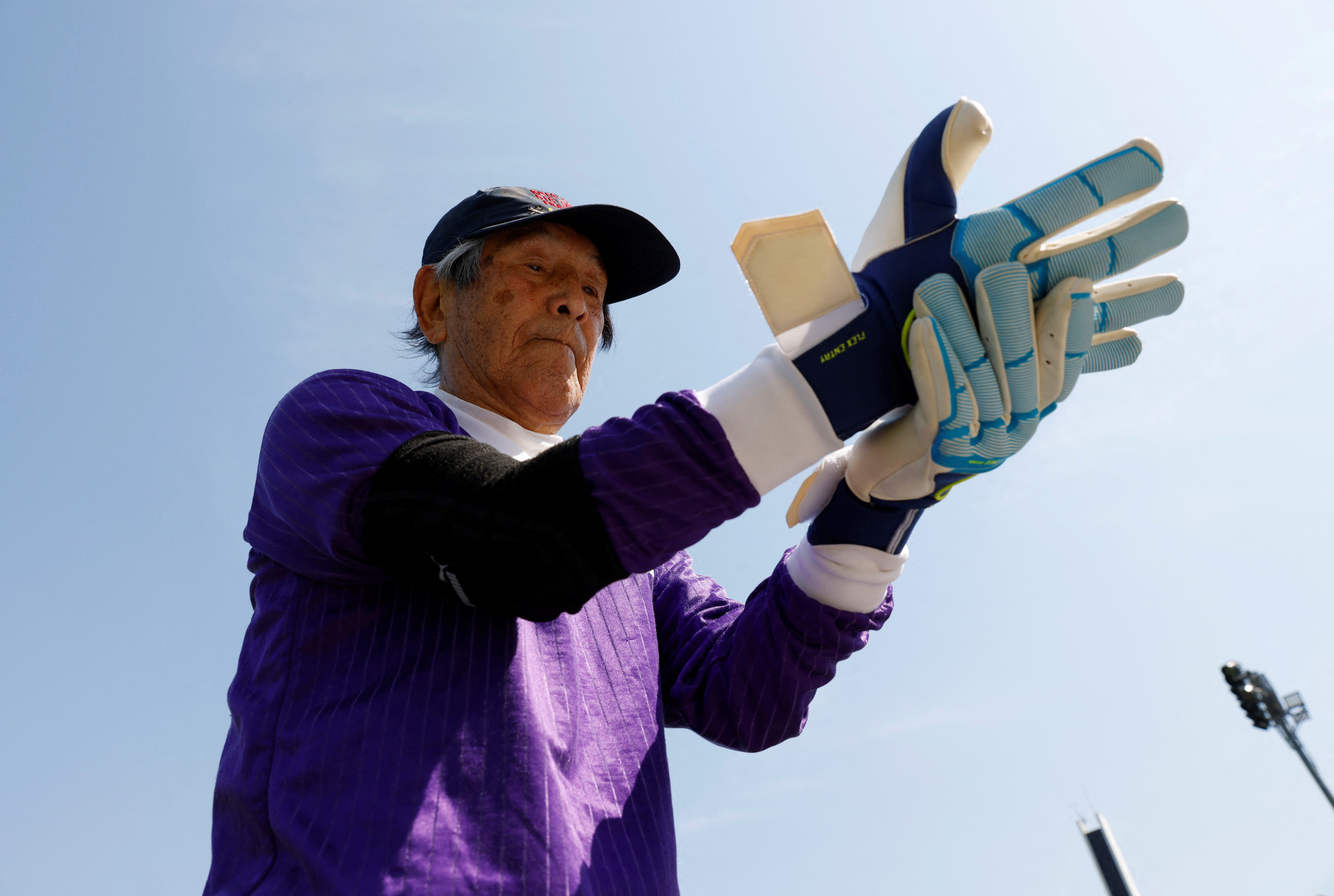
It was only two decades ago that Tokyo created a division for the 0-60 age group. In 2012, the 0-70 division followed, and five years later, the 0-75 category. At that rate, 0-80 was simply a matter of time.
Role Model
If his more “mature” teammates are something to go by, Nomura may easily have another decade on the pitch: the oldest player, Shingo Shiozawa, is 93.
“If I hadn’t played soccer, I’d have been dead by now,” said the former designer of racing cars, who plays goalie.
He credits the sport with motivating him to quit smoking and helping to speed his recovery after treatment for spinal stenosis.
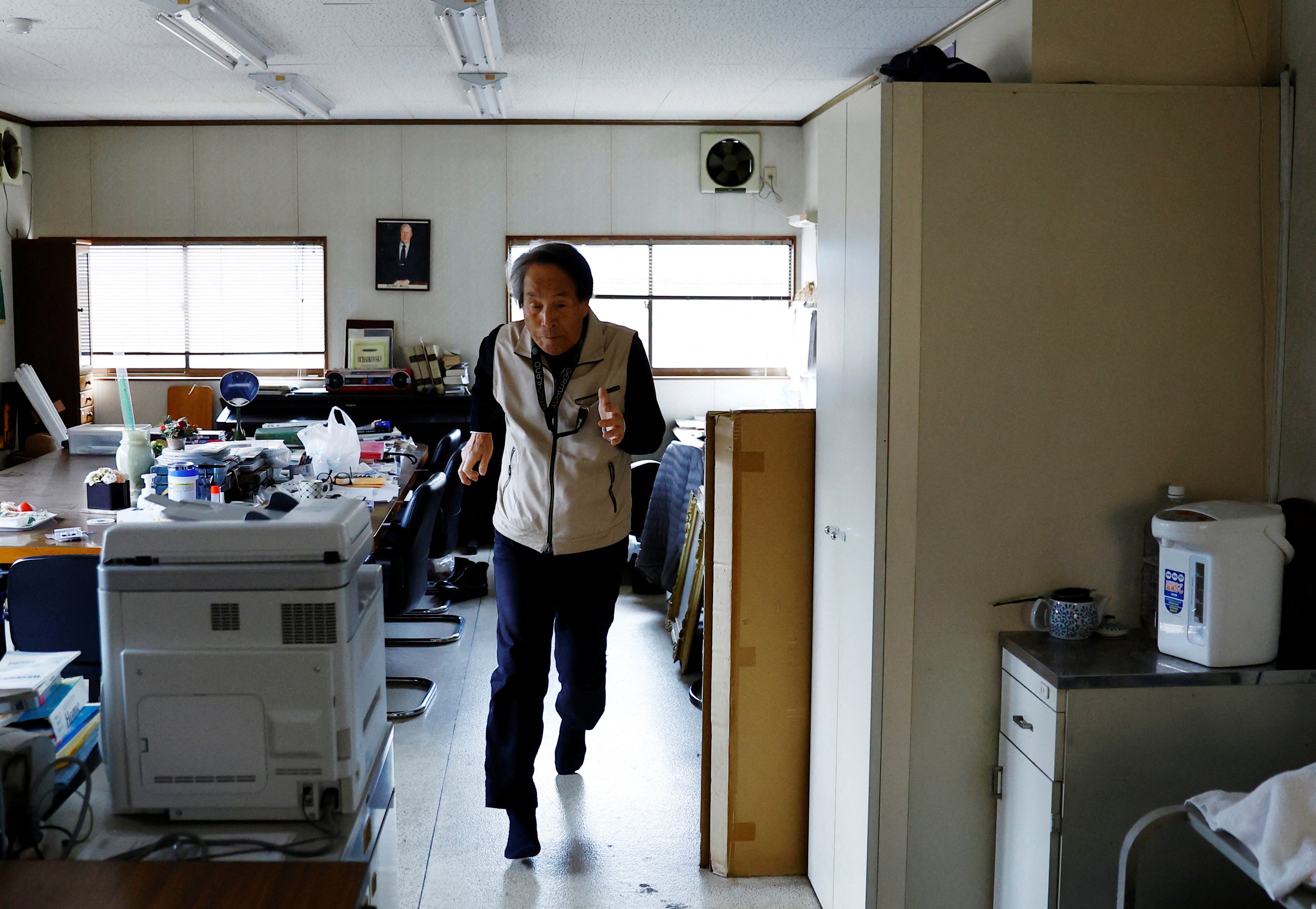
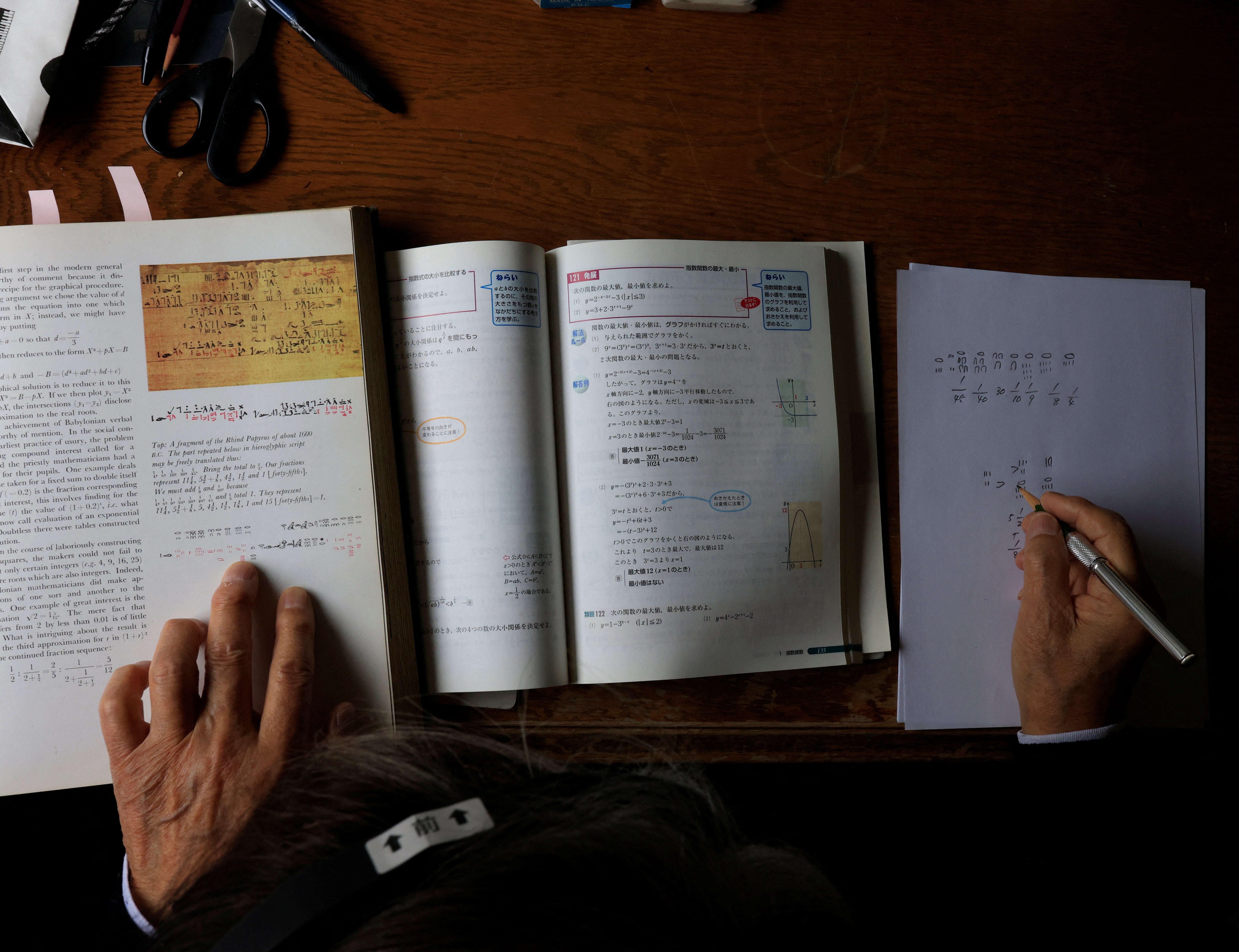
With an average age of 83-1/2, however, stiff backs, creaky knees and laboured breathing were often on display as the players of the three SFL teams slogged through inaugural matches under a blazing sun last Wednesday.
A ball propelled forward by a player failed to reach his slow-moving teammate, while a few stumbled and wobbled on the pitch. An 89-year-old who ran out of breath asked to be substituted about 10 minutes into a match, unable to play the rest of the 15-minute half.
After the game, Nomura and his teammates toasted their prowess with cans of beer, in a ritual familiar to many younger players.
Despite decades of watching Nomura play football, his wife, Junko, says she’s not concerned about injuries - only his high blood pressure, which she logs everyday in a notebook, along with his activities and meals.
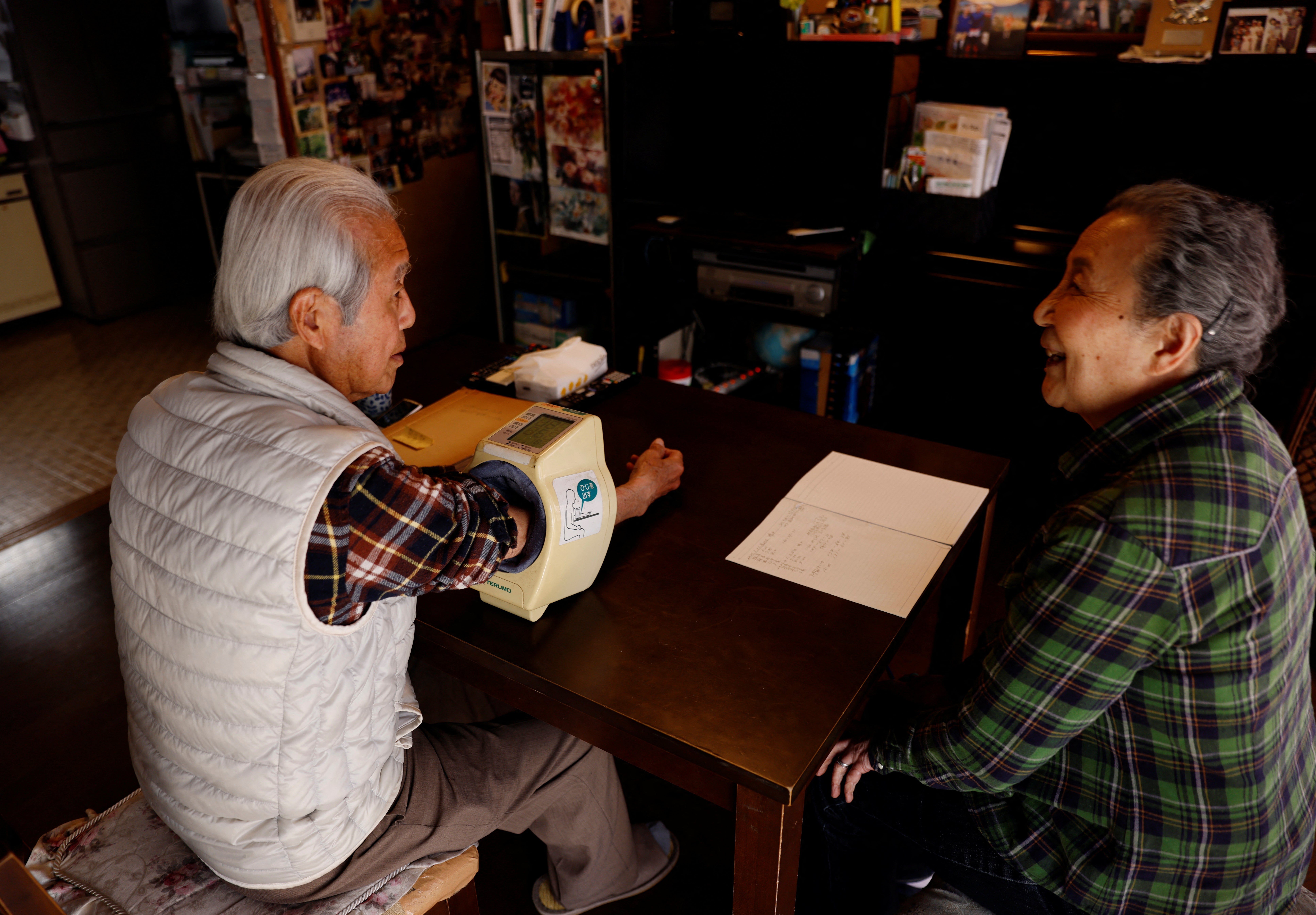
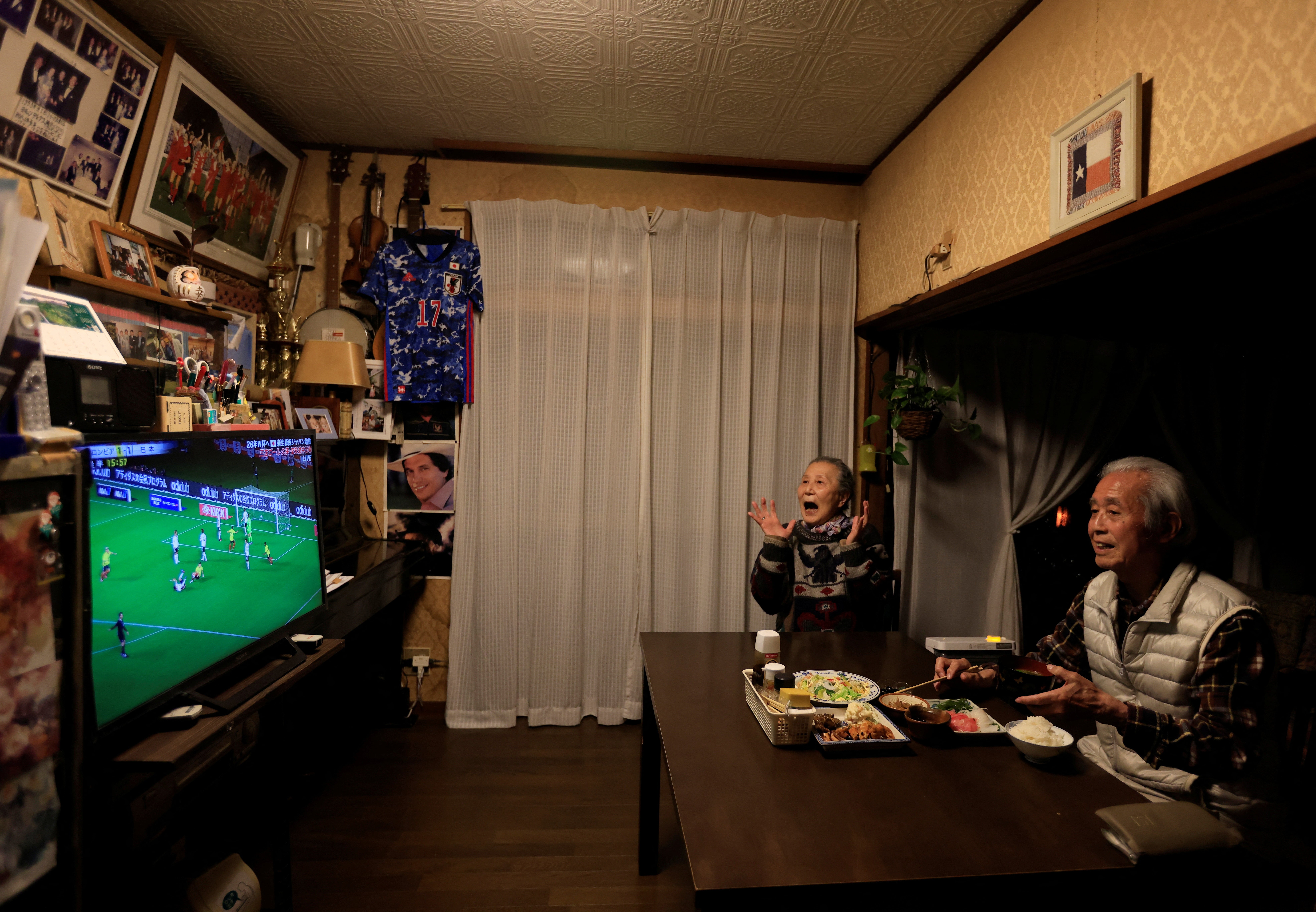
“He likes to eat meat, so I try to get him to eat vegetables,” she said of Nomura, who started playing football in middle school and won the national tournament three times in university.
“I think soccer is the best thing for his health.”
Far from slowing down, Nomura has also taken to kicking the ball around with his daughter and granddaughter on weekends, teaching them tricks and building their love of the game.
“I sometimes go to watch the seniors play, and it makes me feel I should work hard,” said his 48-year-old daughter, Yuriko.
“I really admire him. I hope to be like him, and continue playing when I’m older.”
Photography by Kim Kyung-Hoon
Reuters
Join our commenting forum
Join thought-provoking conversations, follow other Independent readers and see their replies
Comments
Bookmark popover
Removed from bookmarks